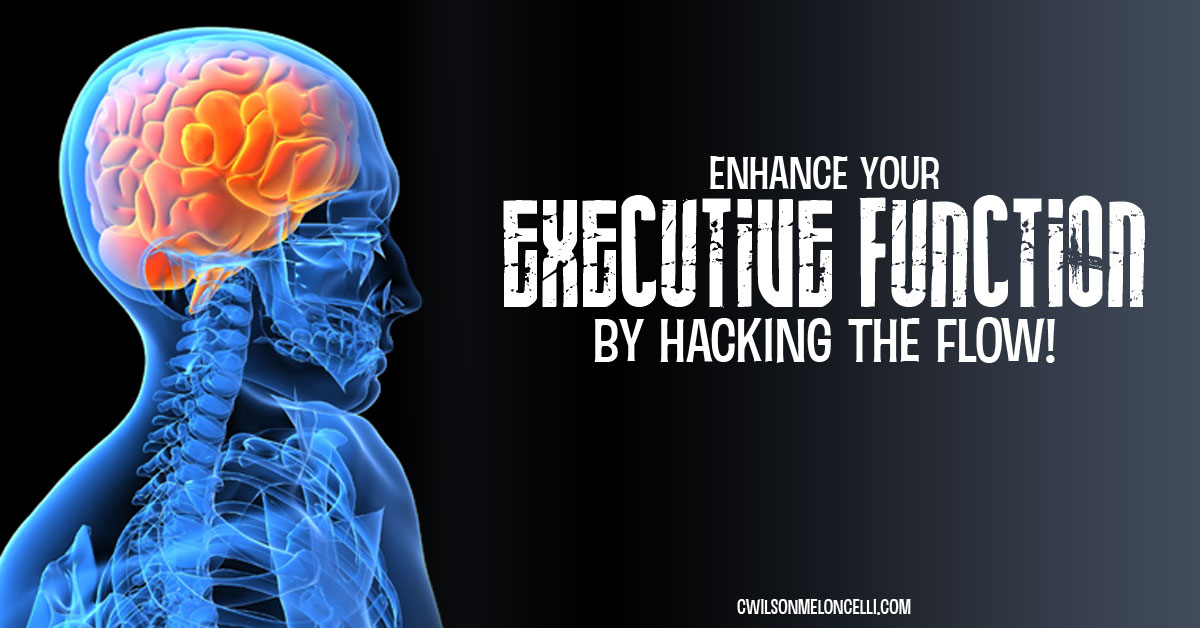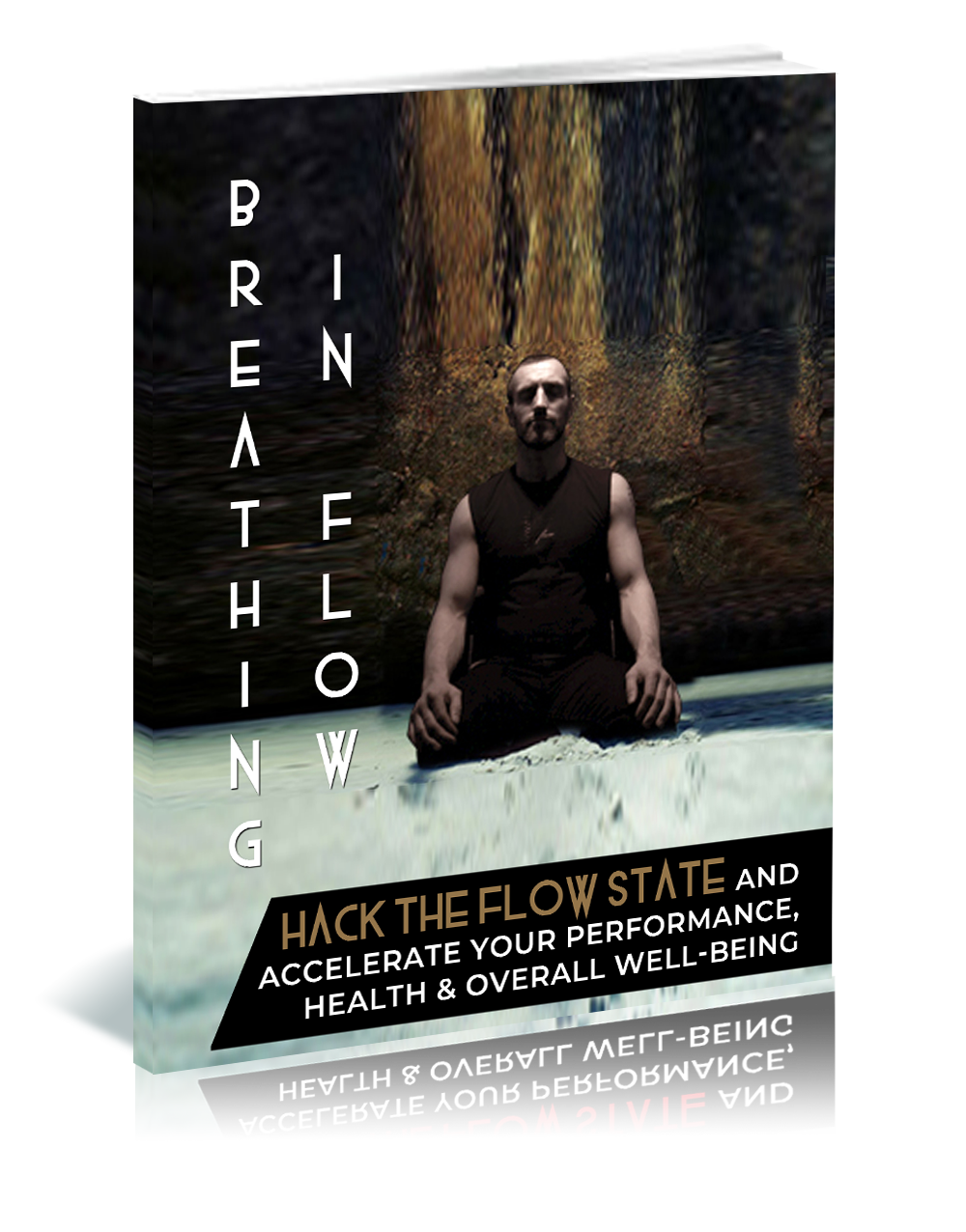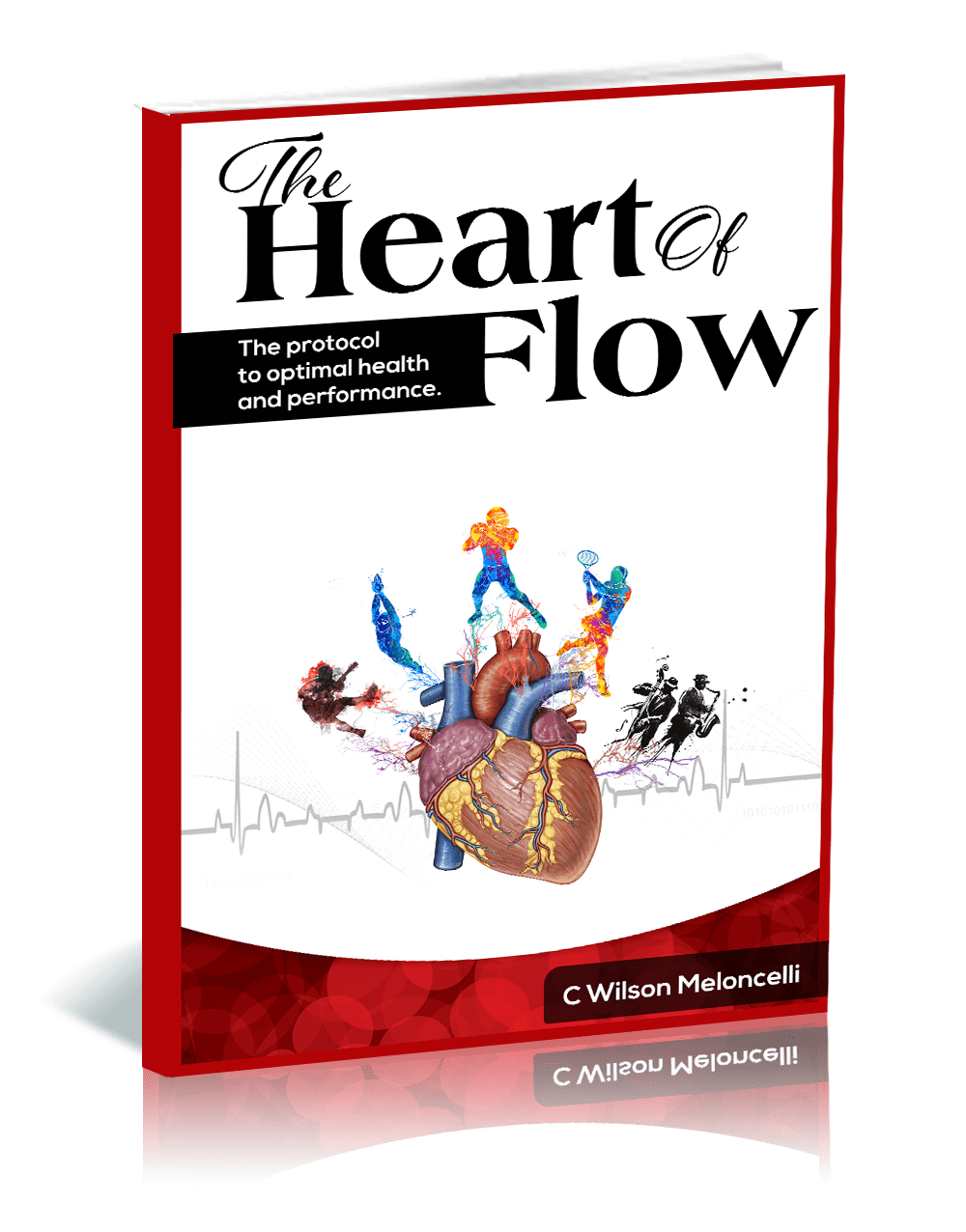Your body and mind is your instrument for expressing optimal performance in a task. The quality of the tuning is critical for effortless excellence. And the music we play is called Flow.
As you all know, I am dedicated to teaching people on how to hack into their optimal performance state; the Flow State. I have a real passion for creating Flow State hacking physical and mental exercises, for the simple reason that the more you practice being in Flow, the easier it is to get into it whenever you want.
When we dissect a flow experience a very common behavior surfaces. Adaptability. This adaptability I’m talking about it not a static adaptability. It’s better to sense what I’m saying as an adaptability in motion. This adaptability in motion are cognitive processes that is also known as “Executive Function”.
So What Exactly an Executive Function is?
Executive function (also known as cognitive control and supervisory attentional system) is a set of cognitive processes and mental skills that can help you process and act on information. It is mainly managed by an area of your brain called the frontal lobe. Executive functions will help you control and develop the following cognitive processes:
- Impulse Control - Involves a careful and coordinated execution of stances or moves that enables them to practice discipline and prudence. People with weak impulse control tend to blurt out inappropriate words or statement without even thinking about it first. They are also at risks on taking risky behaviours. Cognitive Control, on the other hand, will enable them to think things first in a logical manner before making any appropriate decisions and actions.
- Emotional Control - Like controlling impulsiveness, Executive Function also helps keep your emotions in check. People with weak emotional control tends to overreact or complain in the slightest hint of struggle or discomfort. Practicing your emotional control will help you keep your emotions in check. It will also develop their perseverance to strive hard with what they’re doing.
And guess what? The moment you overcome that emotional struggle you’ve had while learning to control your cognitive and supervisory attentional system, you’ve actually overcome the first stage of the Flow state already! Yes, the struggle phase will be all over as you go to the Release Phase.
- Flexible Thinking - This is the ability to roll with the punches and come up with new approaches when a plan fails. People who are inflexible think in very complex ways. They don’t see other alternative or solutions. They find it difficult to change course and they easily get frustrated when they’re asked to do so. Cognitive flexibility refers to the ability to flexibly adjust to changed demands or priorities, to look at the same thing in different ways or from different perspectives. If one solution isn’t working, a person with cognitive flexibility knows how to “think outside the box”. Such flexibility is needed for meeting novel, unanticipated challenges and for seizing opportunities when they unexpectedly appear.
- Working Memory - it involves more than holding information in mind and use it to complete a task. It is doing that task while performing one or more mental operations. People with weak working memory skills have trouble with multi-step tasks. They have hard time remembering instructions, taking notes or understanding something that are explained to them. Working Memory is needed, for example, for re-ordering the items you are holding in mind or seeing how they relate to one another. It also needed for remembering your question or comment while following an ongoing discussion or for holding in your mind what you were about to do when something appears that must be dealt with first. It is necessary for making sense of anything that unfolds over time for that always requires holding in mind what have happened earlier and relating it to what is happening now.
This also happens during and after the Flow State. When you’re in Flow, your memory is heightened (as you are deeply aware of your surroundings), you are able to focus on the present time and getting the task done.
- Self-Monitoring - Executive Function helps you to practice self-monitoring attitude and self-control. If you have sense of control, any amount of fear is eliminated. Executive Function can help boost your self-confidence. After all, you’d be so proud of yourself for executing those moves!
Building and boosting your confidence will strip the fear or doubts in yourself that keeps you from trying something. This is essentially a good thing since you will be unstoppable, nothing will hold you back from attaining your true potential and peak performance.
- Planning and Prioritizing - Since exercises under executive function involves a step-by-step, structure sessions and exercise, your planning and prioritizing skills are also put into a test. How? Since you’re able to develop your sense of self-monitor or control, you can also assess your progress. In this case, you’ll know what are the steps or process to do in order to improve your performance and master it.
With the help of your flow state training program, you’ll be able to organize and prioritize which lessons you would do first and excel with it. We’ll be able to formulate a perfect plan or program to help you achieve your peak performance according to the best of your ability.
7 & 8. Task Initiation and Organization - This cognitive process is actually connected to the prior one. The moment you develops the sense of organizing and prioritizing your needs, you’ll be able to initiate performing the task. You can initiate to move, to practice in order to master a certain task or skills. If you have a weak task initiation skills, you tend freeze up since you don’t have any idea where to begin. If you’re organized, he will be able to prioritize which tasks need to accomplish first and successfully manage his time throughout the day.
Recent Research on Executive Function Using Filipino Martial Arts Kali
One way of triggering your flow state and improving your executive function is through engaging in cognitive exercise. This was underlined with a great TEDtalk by Paul McCarthy of cognitive kali. Filipino Martial Arts (kali) uses a combination of bilateral exercises while improving your cognitive and executive functions.
In fact, the Martial Arts was used by the medical researchers of Adele Diamond Division of Developmental Cognitive Neuroscience to study the effects of physical exercises to the improvement of executive functions for children. The results were astounding. Those children who’ve undergone as little as 20-minute sessions in Martial Arts, Dance or engaging movement based activities have shown more improvement and better post-test scores than children haven’t undergone these type of activities. The study had emphasized the following benefits of undergoing physical exercises in improving our executive function:
- It enables children to overcome their perceptive problems by activating their somatosensory processing (sense of touch and perception). The participants were occasionally blindfolded for 15-20 minutes per session to help them improve their e proprioceptive and kinesthetic information over more common visual inputs.
- Their visual information was restricted by commencing some specific Kali positions (e.g. back-to-back, standing instance looking down) to force participants to determine the most efficient course of actions to take.
- Because of the simultaneous and unpredictable movements in martial arts, it helps improves the child’s motor coordination. The transitioning of positions and stance in executing martial arts helps them improve their body movements, rotations in three-dimensional space, and execution speed.
- It improves their cognitive and executive function. The instances wherein the children need to perform a series of movements and stance and recall them every session motivates them to focus on the task at hand. Eliminating any kind of distraction in the process. This also gives them the opportunity to improve their auditory senses by performing a series of movements associated with the number uttered by their instructors. It stimulates the children’s ability to process and maintain information despite the interference and strenuous physical constraints.
A separate study conducted by UCLA Medical Center at the University of Pittsburgh also shows that physical activities also correlates with larger brain volumes in the frontal, temporal, parietal lobes, including the hippocampus. The patients who have undergone physical lowered down their risks of acquiring Alzheimer’s dementia for about 50%. Cognitive-engaging exercise is known to have a stronger effect in hacking the flow state than non-cognitively- engaging exercise on children’s executive function.Here are the other benefits the researchers found when they incorporated physical exercises (such as Kali) on patients with Alzheimer patients:
- It improves their cardiorespiratory function and promotes a healthy blood flow circulation as they execute the stance of kali or martial arts.
- It helps improve their mental alertness (and battle dementia, apparently!), judgment and cognitive function as they analyze the situation they’re currently in. Predicting what the next move of their opponent is and what stance they should execute to block their opponent’s attack.
- Physical exercises such as kali also help to lower down Depression on people with Alzheimer’s disease. Approximately 5-23% of the people who participated the study had noticed an increase of memory improvement and impact to a person’s quality of life. Physical exercise helps your body to battle cortisol levels while releasing endorphins to elevate your mood.
- Martial arts exercise's helps promote our balance and strength. As you know, our physical mobility deteriorates as dementia progresses. Physical exercise helps counter this side effects since it encourages you to keep moving as you perform the exercises. It will also keep you rooted to the ground, preventing you from having the urge to wander and get lost.
- Martial arts exercises can help improve your circadian rhythm than promotes better sleep, especially at night. It keeps you from napping frequently during the day while being restless at night. It also helps in maintaining a healthy heart that prevent other health complications.
Conclusion:
Executive Function, also known as cognitive control and supervisory attentional system is a set of cognitive processes and mental skills that can help you process and act on information. There are 8 Cognitive Processes that are connected with the executive functions; Impulse control, Emotional control, Flexible thinking, Working memory, Self monitoring, planning and Prioritizing, Task Initiation and Organization. One way of triggering your flow state and improving your executive function is through engaging in cognitive exercises like Filipino Martial Arts or Kali. In fact, Executive function was already tackled on TEDtalk by Paul McCarthy of cognitive kali and used by the medical researchers of Adele Diamond Division of Developmental Cognitive Neuroscience for children. A separate study conducted by UCLA Medical Center at the University of Pittsburgh also shows that physical activities also correlates with larger brain volumes in the frontal, temporal, parietal lobes, including the hippocampus for Alzheimer patients. All the results were awesome.
Check out this latest flow state course video where we use kali to trigger flow and simultaneously working our executive functions.
You can begin or strengthen your Executive Function right now by accessing my Flow State Free Course Package. Flow Tutorials, The 3 Step Formula, Instant Flow Meditation and a powerful Flow Triggering Workout. Which I will send to you via email right now (if you want). Pretty cool right? Get your access now 🙂
SIGN UP FOR OUR FREE COURSES HERE
Plus bonus extra courses, tips & content sent to you regularly for free.
Thanks for reading! And stay in Flow State for more.
REFERENCES:
Bherer, L., Erickson, K. I., & Liu-Ambrose, T. (2013). A Review of the Effects of Physical Activity and Exercise on Cognitive and Brain Functions in Older Adults. Retrieved February 13, 2017, from https://www.ncbi.nlm.nih.gov/pmc/articles/PMC3786463/
COGNITIVE KALI RESEARCH. (n.d.). Retrieved February 13, 2017, from http://www.cognitivekali.com/research.html
Morin, A. (n.d.). At a Glance: 8 Key Executive Functions. Retrieved February 13, 2017, from https://www.understood.org/en/learning-attention-issues/child-learning-disabilities/executive-functioning-issues/key-executive-functioning-skills-explained










